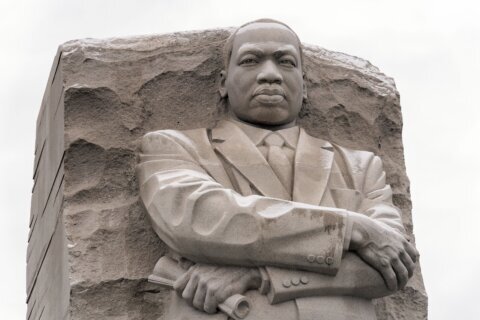Many of us have a love-hate relationship with the holiday season. We look forward to it year after year, cherish our airbrushed memories of family togetherness and spend a ton of time, energy and money in preparation. But we also find the holidays stressful, disruptive and tough on our relationships. For those in recovery from mental illness and/or substance use issues, the holidays can be particularly challenging. When January rolls around, we’re depleted and disillusioned.
It doesn’t have to be that way. Here are five tips to help families transform the stressors of the holiday season, and emerge in the new year feeling energized and more tightly bonded than ever.
1. Schedule self-care.
Don’t let the holidays throw you off your routine. It’s way too easy during this time of year to let your usual self-care habits — whether it’s a morning run or a meditation practice — fall by the wayside.
In fact, if anything, families should prioritize self-care during the holidays, as individuals and as a group. Try scheduling self-care as part of the holiday routine — find a yoga class for the whole family, create a ritual of journaling together to reflect on the season or turn gift-wrapping into a family activity (serve hot chocolate and let the kids choose a playlist).
[Read: 5 Ways to Help Your Teen Develop a Sense of Purpose.]
2. Include a physical activity in every holiday gathering.
Especially in colder climates, family get-togethers often take place indoors and center around food and drink. Sitting and snacking for hours around the table or the TV can make us feel sluggish and encourage overeating.
To counteract that effect, integrate movement into every gathering. Put on music and get everyone dancing, or take the whole family to an indoor rock climbing gym for a couple hours — both great ways to bond, too. To enhance the benefits, take the exercise outdoors: go for a hike, ice skate on a local pond or get a sledding party together. Time in nature has been shown to reduce stress by lowering the stress-associated chemical cortisol.
3. Consciously practice gratitude.
Giving thanks is scientifically proven to make us feel better: Research has linked gratitude to increased levels of well-being. The holidays are a natural time to practice gratitude rituals. Saying grace around the holiday table is a great jumping-off point, but why not make it bigger and better?
Go around the table and have each person share one thing they’re grateful for. This might be a stretch for the teens, but it’s worth pushing a little to get them to exercise the gratitude muscle. Recognizing what’s good in our lives is a skill that can be consciously cultivated and that can serve us at all ages. Plus, researchers have linked family routines and rituals (even ones that teens consider cheesy!) to parenting competence, child adjustment and marital satisfaction.
[See: How to Break 7 Unhealthy Habits.]
4. Shift the focus from the food to other ways of connecting.
For better or worse, food and alcohol are inextricably linked with holiday celebrations. That’s fine, in moderation, for some people; the trouble is that moderation isn’t always easy to achieve at a time of the year when excess is everywhere. And for those with histories of substance abuse or eating disorders, it’s an especially triggering time of year.
Families can address this by finding ways to connect that aren’t dependent on the “social lubrication” of alcohol or a focus on making, serving and eating the meal. Have a game night after or before dinner — board games only, no electronics! Or try a family take on speed dating: Throw out a topic (favorite movies or books, one cool thing you did this year) and have everyone turn to the person next to them to discuss it for five minutes, then switch partners.
[See: 10 Concerns Parents Have About Their Kids’ Health.]
5. Reflect as a family on the year that’s past, and the one to come.
One big holiday stressor is the pressure that people of all ages feel to show their best face to family members they haven’t seen in a while. If it’s been a hard year, you might not be in the mood to talk about what’s new in your life or what you’ve been up to. You can address this with your immediate family prior to a larger gathering by having an open-ended conversation about what’s been difficult during the year, what’s worked well and what your hopes are for the future. Make sure your kids know that you’re proud of them no matter what. (There are long-term benefits to having this type of honest discussion with your kids: Studies have found that ongoing communication between parents and teens decreases teen risk-taking behaviors and reduces adolescent substance abuse.)
This might be a great conversation to have in a larger group, as well, if you’re able to give it some structure (maybe as a continuation of the “speed dating” game mentioned above). When we admit to each other — and ourselves — that our life isn’t always Instagram-ready, we’re opening the door for authentic communication and connection. And that’s what the holidays are really about.
More from U.S. News
Healthy Holiday Desserts and Snacks
How to Overcome the Holiday Blues
Creating Healthy New Holiday Rituals for the Whole Family originally appeared on usnews.com







